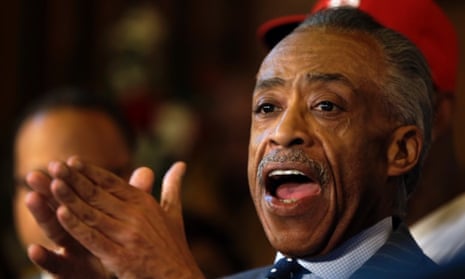Amy Pascal, the embattled executive whose personal emails were exposed by the hack on Sony Pictures, has met with civil rights advocate Al Sharpton to discuss white bias in Hollywood.
The meeting was prompted by leaked emails from Pascal to producer Scott Rudin, in which the pair joke about Barack Obama’s likely taste in films. “Would he like to finance some movies?” Rudin asked, ahead of Pascal meeting the president. “I doubt it. Should I ask him if he liked Django?”, replied Pascal, referring to Quentin Tarantino’s slavery-revenge thriller Django Unchained. The pair also suggested Obama might like 12 Years a Slave as well as films by black comedian Kevin Hart.
Pascal apologised for the remarks, saying they were “insensitive and inappropriate, but not an accurate reflection of who I am”.
Following Pascal and Sharpton’s meeting, Sharpton tweeted that they had a “very pointed and blunt exchange”, arguing that “Hollywood needs to change. Her leaked emails show a cultural blindness.” He added that “we agreed to work towards establishing a basis to address the issues, Ms Pascal committed to this.”
Speaking with the LA Times following the meeting, Sharpton said that emails were the result of “an exclusionary, almost all-white hierarchy” in Hollywood, and that he and Pascal would combine with the likes of the NAACP [National Association for the Advancement of Colored People] to bring more diversity to the film industry.
He also said that he was troubled by Sony’s decision to cancel the release of The Interview, following terrorist threats from the hackers: “A serious and dangerous precedent that has been established where anonymous hackers can intimidate the actual life in America.”

Comments (…)
Sign in or create your Guardian account to join the discussion